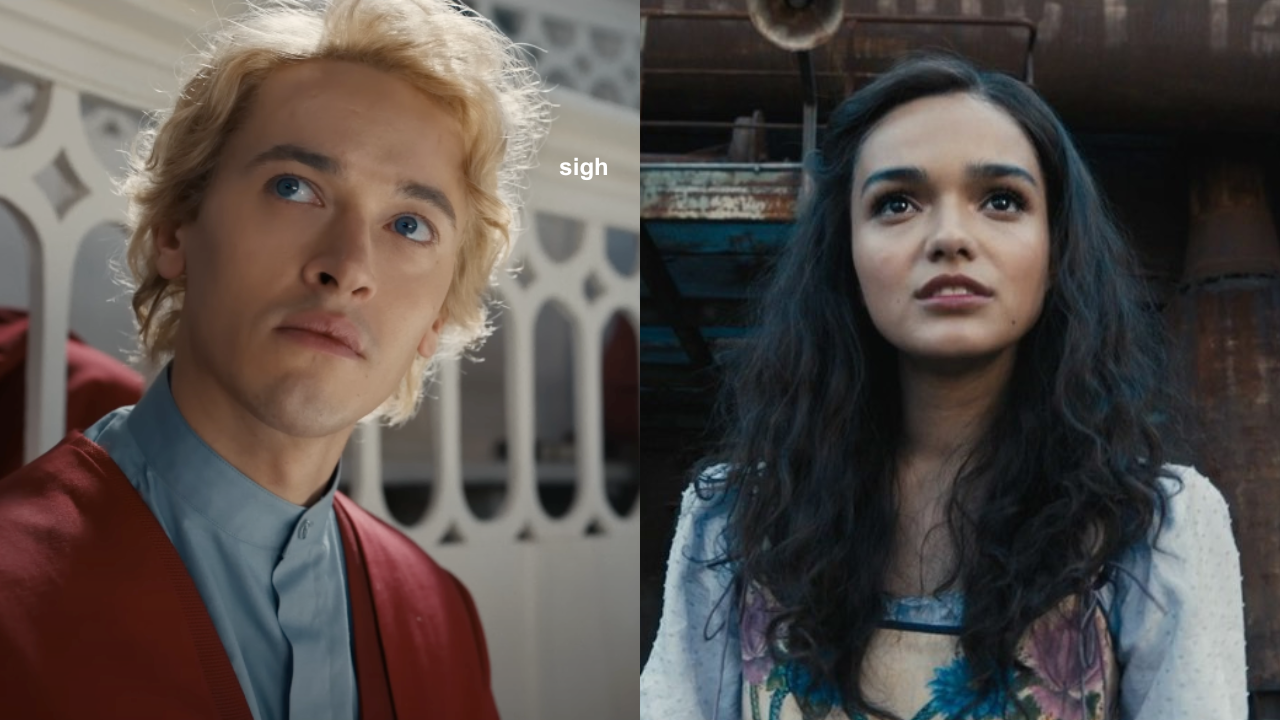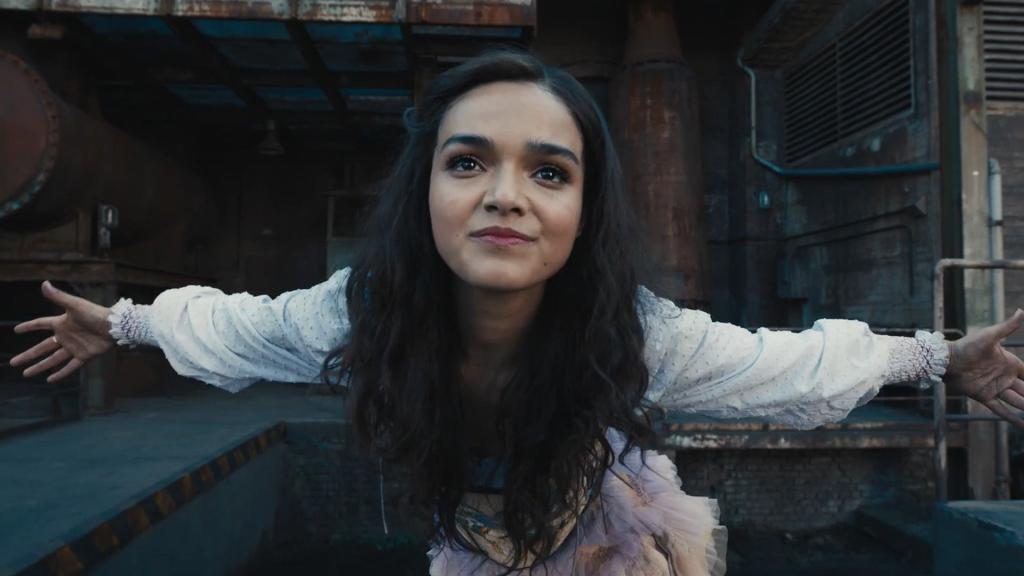
The Hunger Games: The Ballad Of Songbirds And Snakes‘ mouthful of a title is a pretty good indicator of what you’re in for: a film that’s confused on whether it should remain faithful to its source material to please fans, or ditch it to create a more compelling film — and either way, you’re going to skip a few bits in your head.
The Ballad Of Songbirds And Snakes is based on the Suzanne Collins novel of the same name, and tells the origin story of future series villain Coriolanus Snow.
Set 64 years before we meet Katniss, this new film sees Coriolanus as a young, charming 18-year-old played by a bleached-blonde Tom Blyth (who I’m certain will be fan-cast in the next generations’ Draco Malfoy fanfics).
Coriolanus is about to finish his final year of school, and has grand ambitions for himself. Not just because he wants to be successful, but because he has to be — his once-prestigious family’s money has dried up, and they are on the brink of their terrible secret (poverty) being revealed.
There is one thing that could save Coriolanus’ future — the Plinth prize, a scholarship that would fund his university education, and his aristocratic lifestyle. But to win it, he is tasked with the impossible: make the Hunger Games (still in its rudimentary stage) popular, because no one is really interested in watching random kids bludgeon each other to death.
As part of this effort, the first ever mentors are brought into the game, with Coriolanus paired with District 12’s girl tribute, singer Lucy Gray (Rachel Zegler) who is clearly meant to be a Katniss prototype. A disappointment to both fans of the book who know she is anything but, and to moviegoers who probably expected something a little more fresh than a re-hashing of a character who was meant to be unique.

The two develop an emotional connection and subsequent romance, leading Coriolanus to make decisions that question his loyalty — who will he choose? Lucy Gray, or the Capitol?
If you witnessed Coriolonus slightly unhinged inner-monologues in the books, you’ll know the answer to that was obvious from the start — but without his thoughts and intentions so clearly displayed, the film suffers.
Coriolonus’ rougher edges from the book are softened out in the film, likely because no one would care about him otherwise. But this means his arc, meant to be a smooth curve downward, instead takes sudden, confusing dips as we try to reconcile his more problematic actions with what we are being shown of his apparently good natured character. Really, if you need to read the book to fully understand his story, then it’s done a pretty poor job of adapting it.
The film’s third act, which I differ from most people in my opinion of because I quite liked it, feels like it’s been tacked on from a completely different movie. In general, the pacing of the film is all over the place — at times incredibly rushed and at other times, dragging on, and this could likely have been avoided if the film wasn’t so hell-bent on maintaining the same structure as the book. Acts don’t work as well in a movie like this, when one is read over days and the other watched over two hours.

Rachel Zegler’s performance as Lucy was also not as compelling as it could have been, with an inconsistent southern accent and permanent glare at odds with the film’s insistence she could win the hearts of everyone around her. There’s a lot of telling-not-showing regarding Lucy’s alleged sweet nature and charisma.
Hunger Games: The Ballad Of Songbirds And Snakes is meant to critique both our obsession with the spectacle of violence and the insidious power of marketing to nurture it, and ground it in the parallel love story of Lucy and Coriolanus.
Maybe it could have done so properly, had it not been so focused on proving to us that it was based on a book that we love. Instead, it should have admitted to itself that it was an adaption, and gone all the way in the few tweaks it had made. The awkward middle ground of changing some bits but not others resulted in an inconsistent, forgettable film that, at the end of the day, didn’t really feel like it added to the franchise.
Do I think it’s worth a watch? Sure. Viola Davis (who plays mad scientist Dr Volumnia Gaul) is excellent in it, as is Peter Dinklage (who plays the miserable Headmaster Cascus Highbottom), and it’s fun for some casual viewing — especially one particularly scintillating scene involving a handkerchief and some snakes. But it’s not a film you’re likely to revisit, and it certainly won’t have the same gorilla grip on adolescents that the original Hunger Games movies did.
For one thing, there is not a single scene in this film that rivals Peeta Mellark‘s iconic “but if it weren’t for the baby” line. Put it on my gravestone.
The Hunger Games: The Ballad of Songbirds and Snakes will release on Thursday 16 November in Australia.
The post The Hunger Games: The Ballad Of Songbirds And Snakes Review: A Hot But Forgettable Mess appeared first on PEDESTRIAN.TV .







